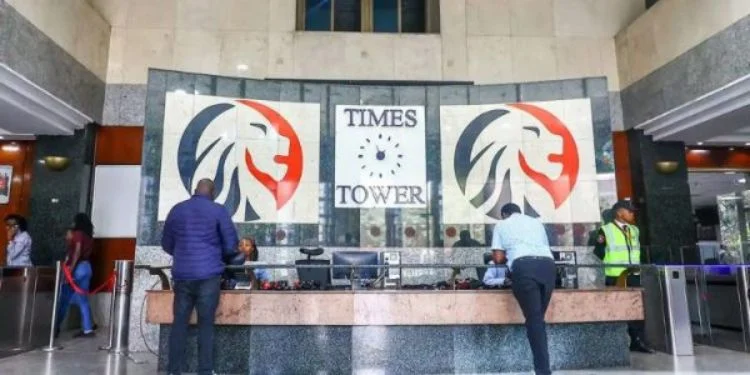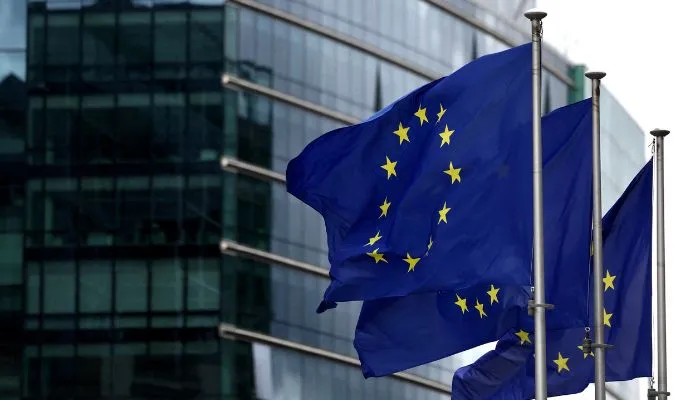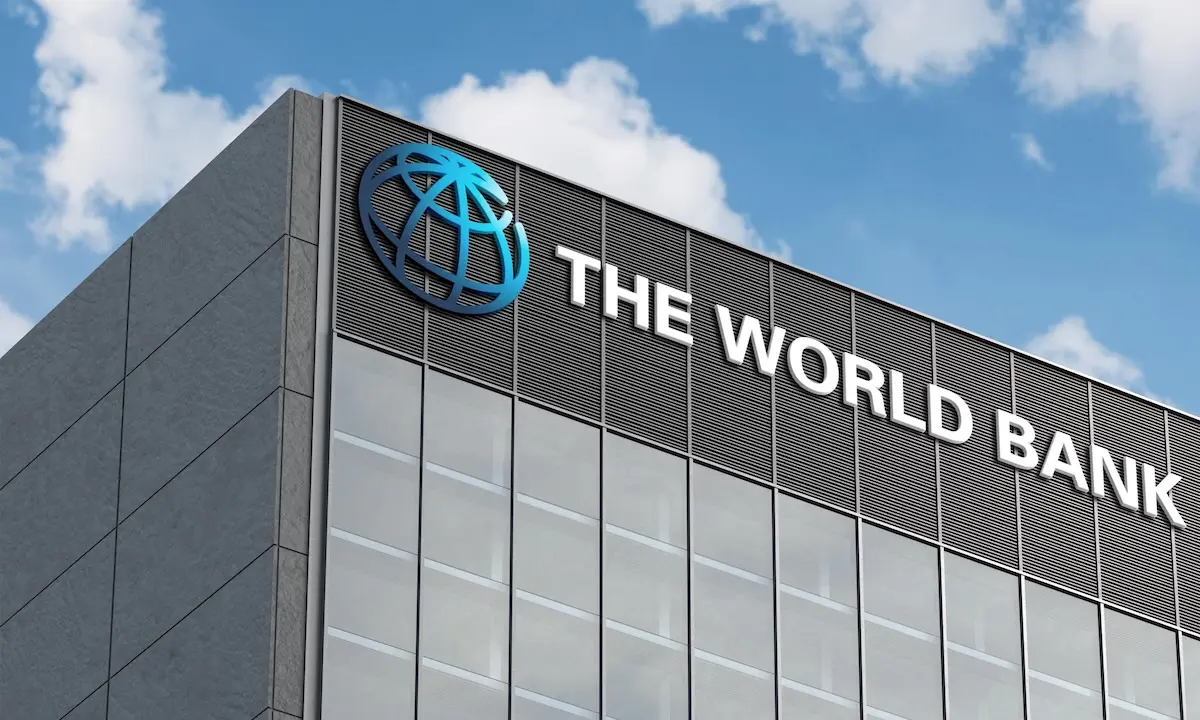Bottom Line Up Front: Brazil’s state-owned Petrobras is poised to return to Nigeria after a five-year absence, bringing world-class deepwater technology and significant investment potential to unlock Nigeria’s vast untapped gas reserves, marking a transformative shift in Africa-Brazil energy cooperation.
The African Energy Chamber (AEC) has welcomed the announcement of Petrobras’s imminent return to Nigeria, marking a transformative step in Africa-Brazil energy cooperation. Five years after halting its joint venture operations, the Brazilian state-owned oil company is set to re-enter the Nigerian market, bringing not only investment but critical expertise in gas and oil development.
Build the future you deserve. Get started with our top-tier Online courses: ACCA, HESI A2, ATI TEAS 7, HESI EXIT, NCLEX-RN, NCLEX-PN, and Financial Literacy. Let Serrari Ed guide your path to success. Enroll today.
Presidential Summit Seals Historic Partnership
During a state visit to Brasília this week, Nigerian President Bola Tinubu focused on deepening economic cooperation and unlocking strategic partnerships, and welcomed Petrobras’s planned re-entry into the Nigerian market. The two countries signed five memoranda of understanding covering trade, energy, aviation, science and finance, signaling a shift from symbolic ties to practical, high-impact collaboration.
“We have the largest gas repository. So I don’t see why Petrobras doesn’t join as a partner in Nigeria as soon as possible. I appreciate President Lula’s promise that this will be done as soon as possible,” President Tinubu declared during a joint press conference with Brazilian President Luiz Inácio Lula da Silva.
The agreements encompass collaborations on biotechnology, ocean science, energy and digital innovation, as well as aviation services that will see Air Peace operate direct flights between Lagos and São Paulo, further cementing the strategic partnership.
Nigeria’s Massive Untapped Energy Potential
Nigeria presents one of the world’s most compelling energy investment opportunities. The country holds approximately 37 billion barrels of proven oil reserves and ranks among the top ten globally, with over 200 trillion cubic feet of natural gas reserves, potentially reaching 600 trillion cubic feet.
Particularly significant is Nigeria’s deepwater potential, with the Nigerian Upstream Petroleum Regulatory Commission (NUPRC) announcing the existence of 13 billion barrels of crude oil reserves in Nigeria’s deepwater terrain. Currently, only 2 billion barrels from explored and developed fields produce 850,000 barrels daily, leaving enormous untapped potential.
The offshore Nigerian shelf represents West Africa’s most prolific hydrocarbon province, boasting multiple billion-barrel discoveries and decades of successful production. More than ten currently producing fields in water depths of 1,000 to 3,000 meters confirm source rock presence and maturity in the deepwater region offshore Nigeria.
Petrobras Brings World-Class Deepwater Expertise
Petrobras returns to Nigeria with unmatched deepwater technology and operational excellence. The Brazilian giant operates some of the world’s most sophisticated floating production, storage, and offloading (FPSO) systems, with advanced carbon capture and injection technologies already deployed across its Brazilian operations.
The company’s technological arsenal includes revolutionary HISEP (High Pressure Separator) technology, which separates CO2-rich gas from production streams and reinjects it back into reservoirs, reducing greenhouse gas emissions intensity by up to 20%. This technology, patented by Petrobras, represents a significant advancement in sustainable oil production.
In Brazil’s pre-salt fields, Petrobras operates 23 platforms equipped with carbon emission reduction technologies, achieving production efficiency that exceeds global standards. The company’s Búzios field alone reached cumulative production of 1 billion barrels of oil equivalent in just five years, demonstrating the effectiveness of Brazilian deepwater technology.
Strategic Timing Amid Global Energy Transition
The partnership comes at a critical juncture for both countries and the global energy landscape. Nigeria’s oil and gas industry is experiencing significant revival as major international oil companies seek to re-establish or expand their presence in the country’s offshore sector following recent reforms and improved policy direction.
ExxonMobil recently committed $1.5 billion between 2025 and 2027 to revitalize Nigeria’s deepwater sector, while Shell has made final investment decisions for major offshore developments. This renewed international interest reflects confidence in Nigeria’s reformed business environment and regulatory framework.
Brazil, meanwhile, seeks to diversify its energy partnerships and expand its technological influence globally. With Nigeria as Brazil’s 49th largest export destination, bilateral trade totaled nearly $2.1 billion in 2024, providing a solid foundation for expanded energy cooperation.
Comprehensive Five-Pillar Cooperation Framework
The partnership extends far beyond oil and gas, encompassing five key memoranda of understanding:
1. Trade and Investment Promotion: Nigeria’s Bank of Agriculture and Brazil’s National Bank for Economic and Social Development (BNDES) signed agreements to expand agricultural financing and joint projects, harmonizing efforts across multiple sectors.
2. Aviation Services: A Bilateral Air Services Agreement will boost trade and people-to-people ties, with Air Peace operating direct flights between Lagos and São Paulo, significantly reducing travel time and costs between the two nations.
3. Science and Technology Cooperation: Comprehensive agreements cover biotechnology, bioeconomy, ocean science, innovation ecosystems, energy, space development, digital transformation, and raw materials research.
4. Diplomatic Training: Enhanced cooperation on diplomatic training and political consultations to address bilateral, regional, and international issues of common interest.
5. Financial Services: Expanded cooperation on finance and banking to facilitate trade and investment flows between the two economies.
Ready to level up your career? Join our expert-led Online courses in ACCA, HESI A2, ATI TEAS 7, HESI EXIT, NCLEX-RN, NCLEX-PN, and Financial Literacy. At Serrari Ed, we turn potential into achievement. Start your journey today!
Economic Reform Success Creates Investment Climate
President Tinubu’s economic reforms have created an attractive investment environment for international partners. “The reforms I’ve embarked upon since I took over in Nigeria have been very impactful. It was initially painful, but today the result is blossoming,” Tinubu explained to investors.
These reforms have resulted in improved foreign exchange availability, reduced currency speculation, and enhanced transparency in financial markets. The Nigerian government launched a performance-based tax relief scheme to boost cost efficiency in upstream petroleum operations, providing fiscal clarity and drawing strong interest from energy investors.
The Petroleum Industry Act (PIA), implemented in 2021, has revolutionized Nigeria’s oil and gas regulatory framework, creating clear guidelines for deepwater exploration and production while ensuring better returns for both government and private investors.
Technology Transfer and Capacity Building
Beyond immediate investment, the Petrobras partnership promises significant technology transfer and workforce development. Nigeria will benefit from Petrobras’s extensive research and development capabilities, operational excellence in challenging deepwater environments, and sustainable production technologies.
Petrobras’s approach to deepwater development combines innovative engineering with environmental responsibility. The company’s experience in Brazil’s Santos Basin, where it operates in water depths exceeding 2,000 meters, directly applies to Nigeria’s deepwater frontier blocks.
The partnership will stimulate local content development, create high-skilled jobs, and enhance Nigeria’s technological capabilities in subsea engineering, FPSO operations, and advanced reservoir management.
Regional and Continental Impact
The implications of this renewed partnership extend across multiple sectors and regions. For Nigeria, Petrobras’s presence will accelerate development of untapped gas reserves, support industrialization through reliable energy supply, and generate significant government revenues through taxes and royalties.
For Brazil, the partnership presents opportunities to export technology, expand market access, and strengthen South-South cooperation. Brazilian companies, including aircraft manufacturer Embraer, are already establishing service centers in Nigeria to serve the broader West African market.
For Africa at large, the partnership signals that international investors recognize the continent as a strategic frontier for energy development and sustainable industrialization. The African Energy Chamber views this development as a blueprint for future international cooperation.
Environmental Sustainability Focus
Both countries emphasize environmental stewardship in their energy cooperation. Petrobras brings proven carbon capture, utilization, and storage (CCUS) technologies that could significantly reduce the carbon intensity of Nigerian oil production.
The company’s All Electric FPSO concept represents the new generation of fully electrified floating units that are more energy efficient than traditional FPSOs and reduce greenhouse gas emissions by up to 20%. This technology transfer aligns with global climate commitments while maintaining economic viability.
Nigeria’s focus on gas commercialization and the upcoming Nigeria-Morocco Gas Pipeline project, spanning 5,600 kilometers with final investment decisions expected by end-2025, demonstrates the country’s commitment to cleaner energy development.
Market Context and Global Competition
The Nigeria oil and gas market is expected to reach 4.66 billion cubic feet per day in 2025, growing at a CAGR of 1.39% to reach 5.00 billion cubic feet per day by 2030. This growth is driven by abundant reserves, increasing foreign investment, and improving regulatory frameworks.
However, challenges remain, including infrastructure vandalization, price volatility, and regional security concerns. Deepwater operations, where Petrobras excels, are less vulnerable to these onshore challenges while offering access to larger, higher-quality reserves.
Historical Context and Future Vision
Petrobras initially entered Nigeria in 1998, focusing on deepwater developments in the Niger Delta before divesting assets over a decade ago to reduce debt and focus on Brazilian pre-salt development. The company’s return reflects both its financial recovery and Nigeria’s improved investment climate.
In February 2025, Petrobras confirmed it was in talks with international oil majors including ExxonMobil, Shell, and TotalEnergies about acquiring shares in African assets, setting the stage for its Nigerian return.
Looking Forward: A New Chapter in Energy Cooperation
“The planned return of Petrobras to Nigeria is a landmark moment that signals confidence in Africa’s energy sector and its long-term growth prospects,” said NJ Ayuk, Executive Chairman of the African Energy Chamber. “It is a clear message to global investors: Africa is open for business, and partnerships with experienced operators like Petrobras will ensure the continent’s energy resources are developed sustainably and profitably.”
While Petrobras’s full re-entry into Nigeria is not yet finalized, the state visit and signed agreements underscore renewed commitment to strategic collaboration. The partnership represents more than just energy development—it symbolizes a new model of South-South cooperation that prioritizes technology transfer, environmental responsibility, and mutual economic benefit.
As Nigeria works to boost daily crude output from current levels of around 1.4 million barrels to meet and exceed its OPEC quota, partnerships with experienced operators like Petrobras become essential. The combination of Nigeria’s vast untapped reserves and Brazil’s world-class deepwater expertise could unlock tremendous value for both nations while contributing to global energy security.
The success of this partnership will be closely watched across Africa and Latin America as a potential model for future cooperation between developing nations in the global energy transition. For Nigeria and Brazil, it represents the fulfillment of long-held ambitions to move beyond symbolic ties to meaningful, transformative economic partnership.
Ready to take your career to the next level? Join our Online courses: ACCA, HESI A2, ATI TEAS 7 , HESI EXIT , NCLEX – RN and NCLEX – PN, Financial Literacy!🌟 Dive into a world of opportunities and empower yourself for success. Explore more at Serrari Ed and start your exciting journey today! ✨
Track GDP, Inflation and Central Bank rates for top African markets with Serrari’s comparator tool.
See today’s Treasury bonds and Money market funds movement across financial service providers in Kenya, using Serrari’s comparator tools.
Photo source: Google
By: Montel Kamau
Serrari Financial Analyst
29th August, 2025
Article, Financial and News Disclaimer
The Value of a Financial Advisor
While this article offers valuable insights, it is essential to recognize that personal finance can be highly complex and unique to each individual. A financial advisor provides professional expertise and personalized guidance to help you make well-informed decisions tailored to your specific circumstances and goals.
Beyond offering knowledge, a financial advisor serves as a trusted partner to help you stay disciplined, avoid common pitfalls, and remain focused on your long-term objectives. Their perspective and experience can complement your own efforts, enhancing your financial well-being and ensuring a more confident approach to managing your finances.
Disclaimer: This article is for informational purposes only and does not constitute financial advice. Readers are encouraged to consult a licensed financial advisor to obtain guidance specific to their financial situation.
Article and News Disclaimer
The information provided on www.serrarigroup.com is for general informational purposes only. While we strive to keep the information up to date and accurate, we make no representations or warranties of any kind, express or implied, about the completeness, accuracy, reliability, suitability, or availability with respect to the website or the information, products, services, or related graphics contained on the website for any purpose. Any reliance you place on such information is therefore strictly at your own risk.
www.serrarigroup.com is not responsible for any errors or omissions, or for the results obtained from the use of this information. All information on the website is provided on an as-is basis, with no guarantee of completeness, accuracy, timeliness, or of the results obtained from the use of this information, and without warranty of any kind, express or implied, including but not limited to warranties of performance, merchantability, and fitness for a particular purpose.
In no event will www.serrarigroup.com be liable to you or anyone else for any decision made or action taken in reliance on the information provided on the website or for any consequential, special, or similar damages, even if advised of the possibility of such damages.
The articles, news, and information presented on www.serrarigroup.com reflect the opinions of the respective authors and contributors and do not necessarily represent the views of the website or its management. Any views or opinions expressed are solely those of the individual authors and do not represent the website's views or opinions as a whole.
The content on www.serrarigroup.com may include links to external websites, which are provided for convenience and informational purposes only. We have no control over the nature, content, and availability of those sites. The inclusion of any links does not necessarily imply a recommendation or endorsement of the views expressed within them.
Every effort is made to keep the website up and running smoothly. However, www.serrarigroup.com takes no responsibility for, and will not be liable for, the website being temporarily unavailable due to technical issues beyond our control.
Please note that laws, regulations, and information can change rapidly, and we advise you to conduct further research and seek professional advice when necessary.
By using www.serrarigroup.com, you agree to this disclaimer and its terms. If you do not agree with this disclaimer, please do not use the website.
www.serrarigroup.com, reserves the right to update, modify, or remove any part of this disclaimer without prior notice. It is your responsibility to review this disclaimer periodically for changes.
Serrari Group 2025
















